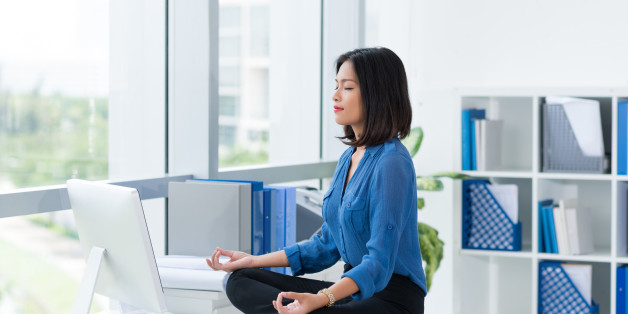Does your answer to “What do you do?” match with your answer to “What do you enjoy doing?” Think about that for a second.
With our careers so intrinsically linked to our identity, it’s no wonder we give so much to them. We are boxed, labelled and sent on our way by “what we do.”
With society’s expectations of success, longer days sitting at a desk and an ever-increasing age of retirement, workplaces are set to be our habitat for the long-term. Accepting that, our sense of belonging and purpose is heavily linked to our careers, colleagues and workplace environment.
I spoke to Tom Freeman, Learning and Development Manager at Headspace about staying healthy and resilient in the workplace.
With 17.5 million downloads across 190 countries, the Headspace app has made huge strides in making meditation accessible, and the benefits of taking a breather understood. Companies like Google, Unilever and Linked incorporate access to the app into their benefits packages in a bid for happier and healthier employees.
What does “corporate wellness” mean to you?
“I think the word ‘corporate’ can turn people off. In reality, it’s just a way of thinking about how to have a healthier relationship with the time we spend during our working week and using that time to get what we need. This should include both physical and mental health factors. This is where mindfulness and meditation are becoming increasingly involved.
It’s also important to offer people choice in what works for them (rather than saying they must use one gym or particular class), and to offer flexible hours so they can fit it into their working week. This way, employees can work out before work if they need to, or even schedule a doctor’s appointment.”
What does it really mean to be ‘well’ in the working world?
“A big part of being well is a balance between looking after your body and your mind. For some people it’s walking to work, for others it’s a weekly yoga class. During the working day, taking time to look after your mind is also important.
At Headspace, we believe it’s important to foster an environment in which employees can take time to meditate every day. I also believe it’s about taking good breaks, whether this is meditating for 10 minutes, or getting some fresh air outside.”
What factors of today’s working environments are most detrimental to our health, physically and mentally?
“Physically, what’s most detrimental to our health in a working environment is the idea that we need to be sitting at a desk all day. I think a healthier alternative includes moving between several different working spaces if the office allows it, using a standing desk when possible, and getting outside (even if it’s raining).
Mentally, technology can have a detrimental effect on us if we allow it to. I think setting expectations around when we can be contacted, as well as not allowing our phones to buzz every time an email comes in, helps with this a lot. Leaders in an organization have to lead by example though and respect this need in their employees too.”
What most stresses people out in the working day?
“One stressful part of city life can be the daily commute. I walk to work now, but previously, I would use my commute to meditate. The Headspace app allows you to meditate anywhere, and we even have content specific to commuting.
Not having time to take care of yourself can also be stressful. At Headspace, we have daily ‘no meeting’ blocks of 30 minutes when our team can do what they want. This might be meditation, getting outside for some fresh air, or just staying at your desk to work without having to worry about a meeting being scheduled over that time.”
What are the quick wins companies can make to help their employees engage more meaningfully in programmes they offer?
“Encourage your organisation’s leaders to take part in wellness programs too. This is a good way to show that it’s important, and you might get to know your team better.
Companies should give employees control over what wellness offerings they want to engage in (e.g. gym membership, fitness classes, healthcare coverage, wellness talks) and when they can do it. For example, can you offer flexible working hours so employees can start later in the day if they need to?
Make the communications light and fun so your employees are more likely to notice and engage with them.”
What are your top tips for staying mentally calm and in control at work?
“Take a break from your work every hour or so and use that time wisely. Take 10 minutes a day to sit to meditate. This can help with so many areas of your life. Or go on a 10-minute stroll outside to get some fresh air. There’s research pointing out how beneficial a few minutes outdoors can be for creativity and general wellbeing.”
Employers could be doing more for our health by making messaging consistent and visible action by management. This means more than hosting a ‘health week’ – that’s a start, but it’s short-lived engagement and effort from employers, when they expect long-term engagement and effort from hard-working employees. We need to see our bosses taking breaks, staying active, eating well, acting as role models for success that takes into account self-care. Actions certainly speak louder than words.
Support and encouragement from C-suite through to line managers can help give employees the space and confidence they need to take responsibility for their health. We don’t want to be told what to do. We want choice. We want the ability to set boundaries, know when enough is enough and be able to make a change for the longevity of our career happiness. This can benefit the company in greater productivity, fewer sick days and happier, healthier, longer-term employees.
From: Evening Standard



